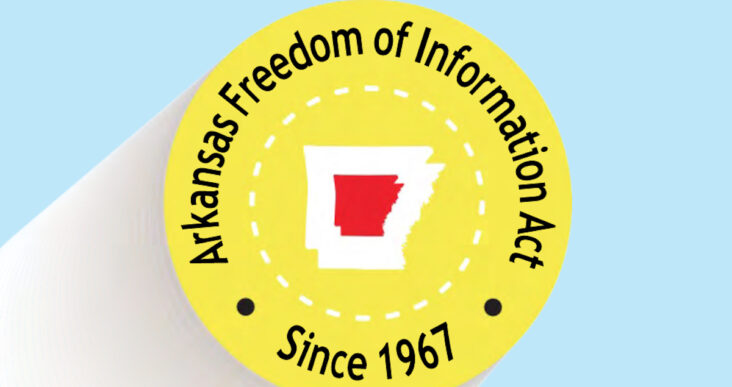Talk Business & Politics editorial: Throwing shade on sunshine laws
by June 25, 2023 5:28 pm 1,609 views

Arkansas Attorney General Tim Griffin has pulled together a seven-person “working group” to modernize the state’s Freedom of Information Act because the existing law was drafted before the iPhone was a thing.
It seems, we are to believe, that technology has made it more difficult for state agencies, your local police department, the parks department and any number of other public bodies to comply with valid requests for public documents.
Technology has made so many things easier. The private sector is using technology to make space travel significantly more affordable and efficient. Technology is what brought us a COVID vaccine many years before what would have been possible otherwise. Technology, we’ve learned from watching the Russian invasion of Ukraine, is a great leveler on the field of battle. When David goes digital, Goliath goes running for cover. Music and books and movies are much more immediately consumed and enjoyed thanks to technology.
But somehow, technology is only a one-way street when it comes to the public seeking public documents.
“The last time FOIA was modernized, the iPhone hadn’t been invented yet,” Mr. Griffin noted in his announcement of the working group. “Since then, the use of digital records and new communications technology has increased exponentially, making it possible for public entities to create and retain more records than ever before, making responding to FOIA requests more complex and increasing the amount of FOIA requests being lodged with public entities.”
Mr. Griffin wants us to believe the same technology that allows the more convenient use, delivery, storage, study and access to documents, books, reports, studies, movies, television shows, pornography, memes, moon landing conspiracy theories, and Calvin and Hobbes classics, is NOT available for governmental agencies to respond to valid FOIA requests. It’s as if FOIA requests travel at warp speed through the internet until getting all balled up at a Gutenberg press operated by your local sheriff’s office.
We asked Mr. Griffin why the default position is to limit public access to information instead of using technology tools to make information access more convenient for all parties involved.
“Two things can be true at the same time: technology can both create problems and provide solutions. The reality is the law must adapt to advances in technology,” was his answer.
We sincerely hope Mr. Griffin, through his working group, will place considerable time and energy on the “provide solutions” part of his answer. We can only hope because working group meetings will not be open to the public.
Mr. Griffin also said he created a “bipartisan” working group to study the state’s FOIA. But we are not necessarily comforted by a bipartisan moniker after watching how several in the working group sought to weaken the state’s FOIA rules in the previous legislative session.
“While partisanship may not necessarily track one’s views on FOIA, it is highly relevant to the legislative process, which is where any proposed legislation will be debated,” was Mr. Griffin’s answer when we asked about the partisanship label.
Here’s the thing folks. For many years, Arkansas has been recognized as one of the best states when it comes to “sunshine laws.” But some folks like to move in the dark. They want a FOIA dimmer switch. There were several attempts – some successful – during the past legislative session to weaken Arkansas’ laws about public access to public documents; about citizen access to what elected officials are doing in matters of the public’s business.
The FOIA dilution efforts that failed did so because dimmer switch proponents had not yet laid the groundwork for “evidence” that Arkansas’ existing laws are out of touch with modern realities. So, before the next session cranks up in 2025, there will be attempts to convince legislators that it’s really in the public’s interest for the public to have less access to what’s being done to their interests.
If you believe government can be improved by laws that limit the public’s ability to understand what the government is doing with laws, then please ignore our plea to ask your elected officials to push back against overt attempts to darken our sunshine laws.
